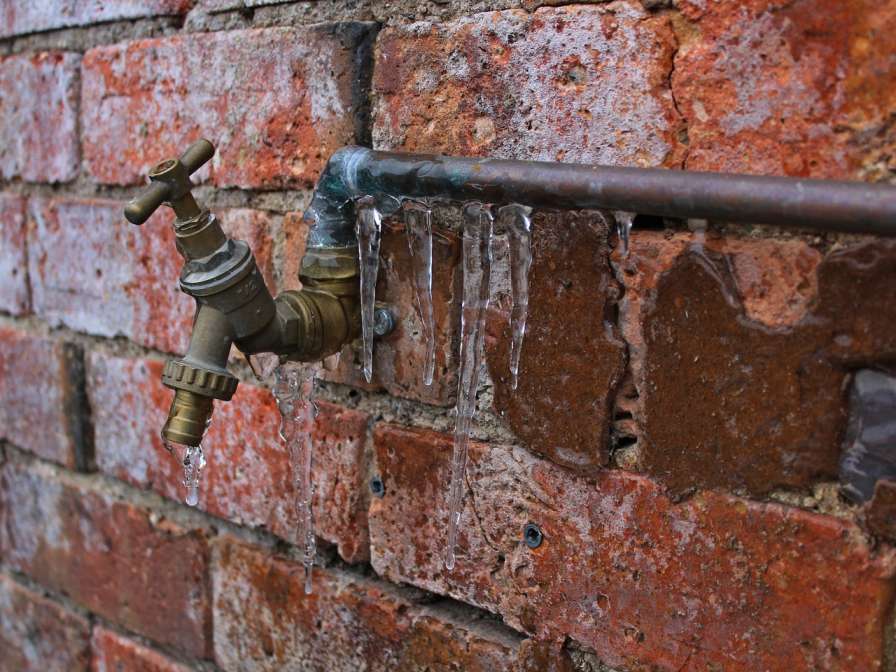When the weather gets too cold, it can cause your pipes to freeze and even burst. That’s because water expands when it freezes and that added pressure can be enough to make them rupture. It usually doesn’t happen where you can see ice, but further down the pipe in between a faucet and the ice.
Water supply pipes are what you need to be concerned with in spaces like garages, basements, and attics, as they’re just an inch in diameter, making it much easier for them to freeze, whereas drain pipes are at least 1 ½” or larger in diameter. Although they also carry water, they don’t hold it and aren’t pressurized, which means that the pipes won’t burst even if some freezing does occur.
Once temperatures start to drop, not only do you need to contact your propane supplier to be sure you have enough to keep your home warm if it’s heated by that form of fuel, but it’s time to protect those pipes. The “alert threshold” is 20 degrees Fahrenheit, according to research by the Building Research Council at the University of Illinois.
Use Electrical Heating Tape or Pipe Sleeves
Products to keep your pipes insulated like electrical heating tape or pipe sleeves can be purchased and easily placed around pipes to keep them from freezing. There is manual heating tape that you can plug and unplug as needed or you can purchase self-monitoring heat tape that has a sensor. That means it will only turn on when heat is required, making it more energy-efficient.
Allow Faucets to Drip
While it may not be great for conserving water, allowing cold water to drip from faucets that are supplied by exposed pipes will help prevent them from freezing. You don’t have to let it pour, just a trickle will work.
Don’t Keep the Thermostat Too Low
A cold snap isn’t the time to turn the thermostat down just to save a few dollars on your heating bill, as it could result in major expenses should a pipe burst. Keep it set to the same temperature day and night.
If you plan to be away for an extended period during the chilliest months of the year, keep your home warm enough by setting the temperature to no lower than 55 degrees Fahrenheit. It’s a good idea to alert a trusted neighbor if you’ll be away for more than a few days too. Ask them to periodically check to ensure the measures you’ve taken to prevent frozen pipes have worked and that nothing has ruptured.
Add Insulation
Adding insulation to your basement, attic and any crawl spaces can help prevent pipes from freezing over the long term. Spray foam insulation or caulk can be used to fill any gaps.
Yiou might temporarily seal crawl spaces by cutting foam to fit the size of vents. That will reduce the amount of colder air that seeps in.
Be sure to prevent any drafts by sealing openings and cracks around doors and windows too.
Open Cabinet Doors and Close the Garage Door
Opening bathroom and kitchen cabins will allow warmer air to reach your plumbing to stop pipes from freezing. If any pipes run through your garage, keep the garage door closed.
